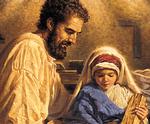Cardinals hear reports on Vatican’s financial situation, discuss polarization, synodality
May 01, 2025
On April 30, members of the College of Cardinals met in their seventh general congregation since Pope Francis’s death. 181 of the 252 members of the College of Cardinals—including 124 of the 133 cardinal electors—were in attendance, the Vatican newspaper reported.
The meeting lasted for three and one-half hours, beginning with prayer at 9:00 AM, and concluding with the recitation of the Regina Caeli at 12:30.
According to L’Osservatore Romano, the first part of the meeting was devoted to financial reports:
- Cardinal Reinhard Marx of Munich, coordinator of the Council for the Economy, “presented an updated overview of the existing challenges and critical issues, offering proposals oriented towards sustainability and reiterating the importance of economic structures continuing to support with stability the mission of the papacy.”
- Cardinal Kevin Farrell, the camerlengo (chamberlain) of the Holy Roman Church, discussed the investment committee that he leads.
- Cardinal Christoph Schönborn, president of the Commission of Cardinals for the Supervision of the Institute for the Works of Religion (IOR), spoke about the IOR, colloquially known as the “Vatican bank.”
- Cardinal Fernando Vérgez Alzaga, LC, president emeritus of the Governorate of the Vatican City State, discussed “some details relating to the Governorate, also speaking about renovation work involving state buildings and the support provided to the Apostolic See.”
- Cardinal Konrad Krajewski spoke about the work of the Dicastery for the Service of Charity, of which he is prefect.
The Vatican newspaper then summarized the 14 interventions, or brief speeches, subsequently made by members of the College of Cardinals:
A reflection on the ecclesiology of the People of God was highlighted, with particular reference to the suffering caused by polarization within the Church and divisions in society. The value of synodality, experienced in close connection with episcopal collegiality, as an expression of differentiated co-responsibility, was repeatedly recalled.
The issue of priestly and religious vocations was addressed on various occasions, considered in relation to the spiritual and pastoral renewal of the Church. Several interventions made explicit reference to the documents of the Second Vatican Council, in particular to the Apostolic Constitutions Lumen Gentium and Gaudium et Spes.
Evangelization was discussed, with emphasis on the necessary coherence between the proclamation of the Gospel and the concrete testimony of Christian life.
The report concluded:
Furthermore, other marginal information, learned in response to journalists’ questions, concerns the fact that not all the cardinal electors have arrived yet and that no interpreters are expected in the Sistine Chapel during the conclave. Reference was then made to the situation of Cardinal Vinko Puljić, who, on the advice of doctors, will be present at the conclave, probably having to vote from Casa Santa Marta.
For all current news, visit our News home page.
All comments are moderated. To lighten our editing burden, only current donors are allowed to Sound Off. If you are a current donor, log in to see the comment form; otherwise please support our work, and Sound Off!







